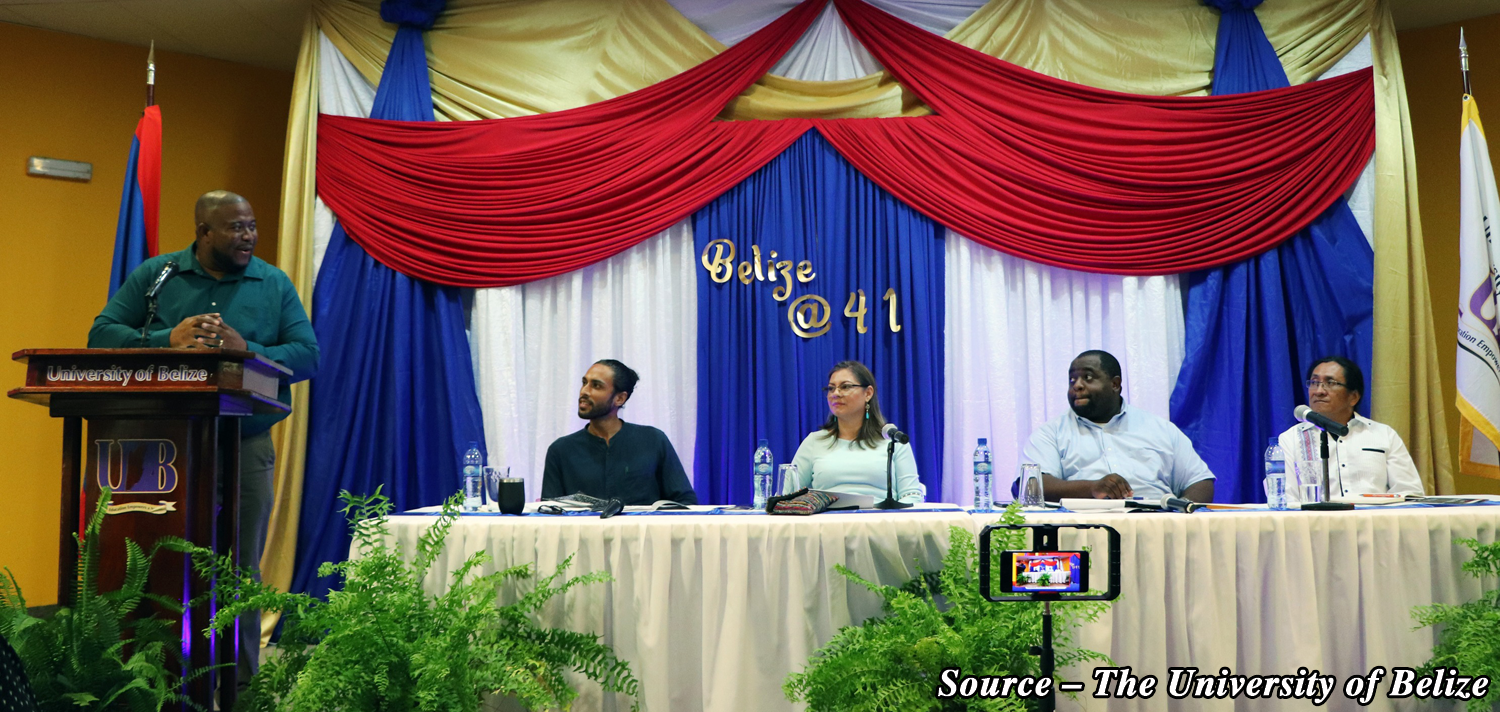During the Belize @ 41 Public Lecture held at the University
of Belize, Dr. Christopher DeShield said that the short and uncomplicated answer to that question is “no.”
by Khaila Gentle
BELIZE CITY, Wed. Sept. 7, 2022
The recent decision by the Government of Belize to revise the Constitution in the name of “decolonization” has sparked much conversation around that topic, including in the realm of academia. Today, at the University of Belize auditorium, four lecturers led a panel discussion on whether or not the country has truly begun to “break the chains of colonial thought” forty-one years after independence.
According to Dr. Christopher DeShield, Assistant Professor at the University of Belize, the answer to that is “no.”
“The question is somewhat naïve. You don’t go through 300 years of plunder, and poverty, and squalor, and neglect and then simply and righteously declare yourself free of all consequence and culpability,” said DeShield.
The university professor noted that the word “decolonization” should not be thrown around so easily, since achieving true decolonization is far from an easy task.
“Our own cultural identities are so bound up with colonial history that I wonder if absolute decolonization isn’t a form of autoimmune disorder. A modern nation is born out of colonialism. To excise it must be painful,” he said.
The main areas of focus for the panel discussion were education, language, immigration, and public policy. The lecturers set out to examine how those areas have been influenced by centuries spent under colonial rule.
Dr. DeShield spoke briefly on how a revised educational system—such as the new curriculum recently rolled out by the Ministry of Education—could provide learners with the tools to break away from colonial thinking.
“If there is something that our education system can invocate, it would be to employ emancipatory and liberatory methods that empower and enable learners of all ages to develop discernment, resilience, 21st-century skills, uncommon discipline, and the ability to maintain extended, skillful focus in an age of shrinking attention spans,” he said.
It’s a tall order, said DeShield, but we must be cognizant of the fact that decolonization is not an arrived-at destination, but a continuous process and one in which the Arts and Humanities have a large role to play.
Ms. Erica Aguilar from the University of Belize’s Faculty of Education & Arts spoke on the role that language and education have to play in the process of decolonization, with a focus on how many schools have barred children from speaking their native tongue—in this case, Kriol—in the classroom.
“To deny people of speaking their native tongue is to deny them the opportunity to demonstrate their authentic richness”, says linguist Benjamin Whorf, because language “is the best show man puts on,” she said.
Following the first half of the lecture, a question & answer segment was held, during which students of the university posed their questions to Dr. DeShield and Ms. Aguilar. The preceding segment featured Dr. Gilroy Middleton, CEO in the Ministry of Foreign Affairs, Foreign Trade & Immigration, who focused on the area of immigration, and Dr. Filberto Penados from Galen University, who spoke on public policy changes—both of which are functions of breaking colonial chains.
The panel discussion was part of a series of lectures being hosted by the University of Belize that are aimed at elevating the quality of discussion in communities.

